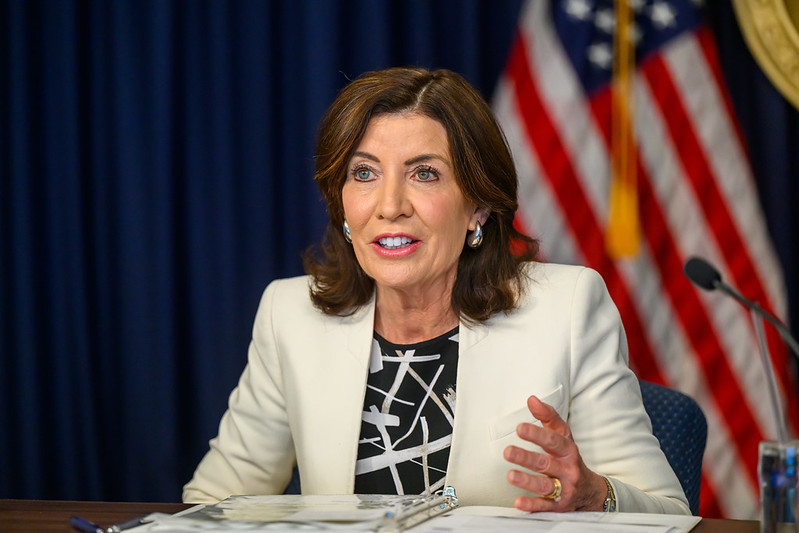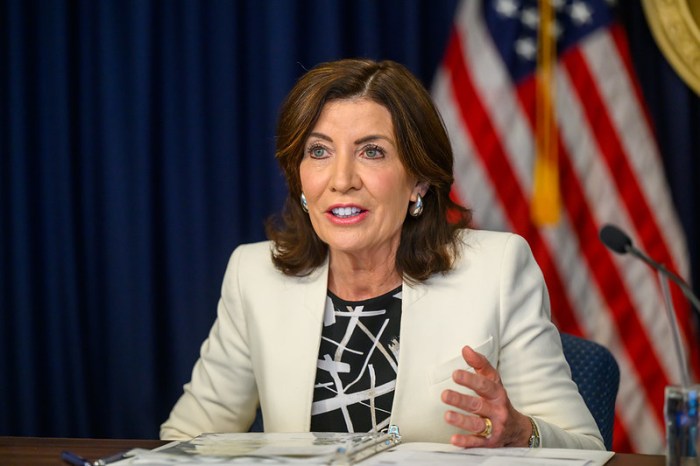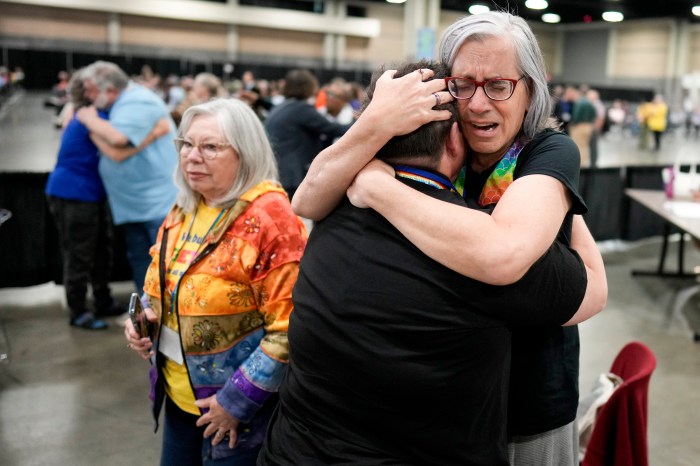It was meant to help new mothers cope with a diagnosis of autism – and give a voice to the otherwise voiceless.
But now, according to sources – including a major benefactor – the Wyckoff Heights Medical Center Autism Advocacy and Awareness Program has been terminated.
An undated press release from the web reads, in part, “Among the ¼ million people Wyckoff Heights Medical Center (WHMC) serves, four neighborhoods in its catchments are federally designated as medically underserved and ‘health professional shortage areas.’ For these parents, obtaining a diagnosis for autism is very difficult. WHMC is proud to announce the Autism Advocacy and Awareness Program.”
The release goes on to say that the program’s mission includes:
•Raising community awareness of autism spectrum disorder.
•Increasing knowledge of early warning signs among pediatric and family practitioners and medical students to facilitate timely referrals.
•Facilitating access to early autism-specific intervention in order to maximize a child’s capacity to reach his/her full potential.
•Becoming a communication center for new programs and services for autistic children.
•Strengthening families by establishing a network of support for the newly- diagnosed.
•The pursuit of funding opportunities to support future initiatives to support children with autism.
Statistically, one in 150 children will be diagnosed with autism. According to Autism Speaks, “Autism impairs a person’s ability to communicate and relate to others. It is also associated with rigid routines and repetitive behaviors, such as obsessively arranging objects or following very specific routines. Symptoms can range from very mild to quite severe.”
The program, according to a source who wished to remain anonymous, was introduced in September 2007 via a video at a fundraiser.
It was meant to “help moms navigate the services that already exist.”
The Man of the Year at the benefit – which raised over $400,000 for the program — was real estate developer Justin Green, President of Hays Ventures, who himself donated $50,000.
“I think it is an important cause, a growing issue that is not too well known,” Green said of his donation. “It was a community in which I felt my money would go further, and I was happy to do it.”
The source told The Courier that the program was launched with that $50,000, to be used for brochures, posters and other informational materials.
Additionally, she said, in August of 2008, a coordinator was hired at an annual salary of $50,000.
A second press release stated that, “In its inaugural phase, this exciting program will increase awareness of autism and help physicians and parents . . . Made possible by generous contributions from supporters, the program will launch a clinic for screening and early intervention as well as a bi-lingual multi-media awareness campaign in 2008.”
From its inception through July 8 of this year – when she was terminated – said the source, the program cost an estimated $83,000 – $50,000 in salary and $33,000 in bi-lingual advertisements, brochures and other materials.
“As far as I can tell there were no other costs associated with this program,” she said. “We were rolling.”
On June 26, she went on, the coordinator’s position was terminated as well, and families were notified of the program’s end, she claims.
But just two months earlier, on April 24, at a full-day conference by the hospital and the program attended by elected officials, Green said, “I felt my donation was going very far. I’m very disturbed that they are getting rid of it.”
Andrew Baumann, President and CEO of New York Families for Autistic Children (NYFAC), was the guest speaker at the confab.
“Rajiz Garg’s [Wyckoff President and CEO] words,” said Baumann, “were, ‘I am very committed and Wyckoff Hospital is very committed to individuals with autism.’”
He explained that he has a formal letter of agreement that NYFAC would be a resource and provide support, services and education to families.
“I wound up giving and giving,” he said of his work with Wyckoff. “I did workshops, conferences, a half-day of training, all at my cost. I just wanted to help them succeed.”
When the program was terminated, said Baumann, “There were plans to grow and expand. I had been writing a formal proposal for a board of professional advisors. We wanted to start identifying patients with developmental disabilities as being referred to Wyckoff from the program.”
Additionally, he said, they were planning on creating clinics with hours and dates for families to be seen.
They wanted to prove to Wyckoff that the program could produce revenue, he said.
“If a program does not prove self-sustaining, it goes,” he explained.
Now, he says, “Any contact that I had for that program or any person I could talk to was let go. The community that the hospital serves is at a huge loss. There were several doctors from several different disciplines ready to help.”
“My heart is literally broken over what has happened to this program,” said the source, who alleges ineptitude by Wyckoff’s board.
“This is a board that has been in place for years and did not evolve in terms of expertise as health care did,” she claims. “When I made overtures about counter-proposals to keep the program open, I didn’t receive any response.”
Green told The Courier that he is not happy with the program’s end, and he plans on being in touch with Wyckoff.
“I think they can find the money in the organization to fund it [the program]. I think it’s a disgrace,” he said.
Repeated calls to Wyckoff went unanswered as of press time.
































